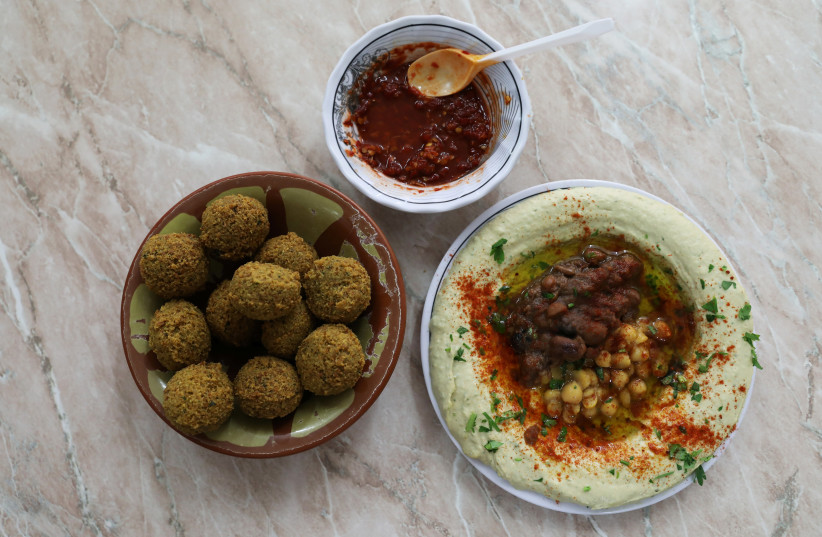Falafel is one of the most iconic foods to come out of the Middle East.
Whether in a pita or lafa, with hummus or tahini, this dish is nothing short of emblematic of the region and its culinary traditions.
But what exactly are falafels made of? Are they Israeli or Arab? And are they healthy?
Here's everything you need to know.
What are falafels made of?
Falafels are a Middle Eastern deep-fried ball fritter made of ground chickpeas and beans.
Often, falafel is also made with other ingredients like garlic, cumin, coriander and parsley.

It is typically served in sandwich form, either in a pita or lafa wrap, and is usually accompanied by vegetables like cucumber, tomatoes and pickles, as well as with sauces like hummus or tahini.
Falafel is typically seen as street food or fast food and is extremely popular, though it is thought that the concept of falafel served in pita as a street food was first mentioned historically in an October 19, 1939 issue of The Palestine Post, which later became The Jerusalem Post.
Is falafel Israeli or Arab? Where did falafel balls originate?
The exact history of falafel is murky and controversial. What is certain, however, is that it is by no means exclusively Israeli - in fact, it almost certainly didn't originate there.
Many scholars believe that its origins actually lay in Egypt, including possibly among Coptic Christians in the Roman era, though the exact circumstances are unknown.
Overall, the best way to describe falafel is not as Israeli cuisine or Arab cuisine, but as Middle Eastern cuisine. Indeed, they are popular among everyone throughout the region.
In Arab countries, falafel is eaten for religious reasons as part of the iftar meal during Ramadan.
Among Christians in the region, falafel is still very popular, especially during Lent.
However, falafel certainly has an iconic aspect within Israel, and it is often considered to be the Jewish state's national dish. The fact that falafel is halachically considered parve, meaning neither meat nor dairy, means they have great culinary versatility.
No nation owns falafel, but the humble dish has remained a core part of the local cuisine.
Is falafel healthy for weight loss?
Falafel may actually have some health benefits.
Chickpeas are widely seen as a superfood, being high in protein. With them, falafel is rich in nutrients like calcium, iron, magnesium and zinc, among many others.
More importantly, chickpeas are low-fat and have no cholesterol, and falafel overall has soluble fiber that helps lower blood cholesterol.
But while falafel may inherently be low-fat, that all changes in the frying process, which causes it to absorb a considerable amount of fat.
For those wishing to avoid this, however, baked falafel can be effective in reducing fat content.
Which country has the best falafel?
This is also a subject that can spark fierce debate, and it really depends on who you ask.
According to a study conducted by Israeli restaurant delivery company 10bis based on Google Trends data, however, the best falafel in the world can be found in Israel.
Investigating further, 10bis looked at the cities around the world with the best falafel.
It gave Haifa the highest score of 9.07 out of 10, crowning it as the city with the best falafel in the world. It was followed by Tel Aviv (8.70), Jerusalem and Beirut in joint third place (7.92), Amsterdam (7.62), Brussels (7.55), Athens (7.50), Berlin (7.47), Lisbon (7.46), and Copenhagen and Dublin (7.14).
However, not everyone will agree with this study. For example, an article in the BBC made the argument that Egypt is home to the world's best falafel, citing numerous Middle East cuisine experts and local foodies.
Although keep in mind, Egyptian falafel tends to be unique in that it eschews chickpeas and focuses entirely on beans.
Whether that makes it best is a matter of personal taste.
Steve Linde contributed to this report.
